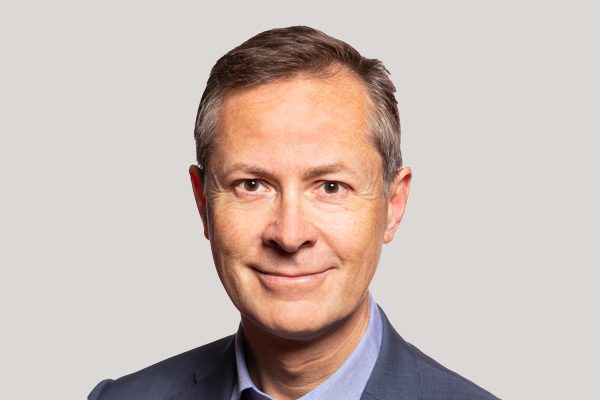1. What has been your previous role before joining Oxford HR?
I consider myself so fortunate and privileged to combine the career experiences of both the multinational corporates and the non-profit development sectors on local, regional and global levels. My professional career has been divided in 3 distinctive phases that I carefully chose and crafted.
During the 3 phases of my career, I had a clear vision of what motivates me and I was constantly considering a few perspectives:
- To work for a purpose
- To work in a collaborative and innovative environment
- To work in a challenging and competitive environment
- To work with multi-stakeholders and in a multi-disciplinary approach
In the 1st phase, I had a vision focused on learning, developing and growing both the business and individually. I had a fast progressing career in the corporate sector where I spent a major part of my career in the health care sector and held leadership positions in multinational pharmaceutical companies such as Eli Lilly and Novo Nordisk.
Working in the corporate sector in general and in the pharma industry in particular, has shaped me in different ways. Besides the profound knowledge in the different business functions; such as strategic planning, financial and operations management, people and stakeholder management, communications, advocacy and partnerships; it shaped my art of leadership and developed my commitment to people, in the first place, and to excellence and quality in everything I do.
I moved vertically through leadership positions and horizontally through different geographical areas in MENA region, South East Asia, and Europe.
Change was never a challenge for me! On the contrary, I like change and would proactively look for it. Throughout my career, I have been through changes of companies, changes of countries, changes of teams, changes of corporate directions. And after so many years of running multimillion dollar P&Ls and leading organizations of different sizes and working in changing environments, phase 2 of my career witnessed a bit of a radical change of sectors, moving to the arena of International Development Non-Profit. Giving back, making a difference, and passion were the key stimulants formulating my vision of this phase. The World Organization of the Scout Movement as a leading non formal education and youth development organization, was the right spot to meet my passion to transfer my accumulated knowledge and expertise to the future young leaders. As global chief of staff, I coordinated the global organizational strategy and operations over 6 regions, led the Human Capital ensuring staff development and engagement, cross functional and cross regional collaboration and supported the board. An experience that deepened my understanding of non-formal education, youth development and empowerment, international relations and multilateral stakeholders’ engagement.
I am currently in phase 3 of my career that is driven by concepts of flexibility, agility, digital transformation, efficiency and effectiveness. With entrepreneurial vision, innovation and experience, I work as freelance consultant to corporates, non-profit organizations, international agencies and government agencies to develop their strategies and organizations towards growth, sustainability and strong impact besides my collaboration with Oxford HR as Associate Consultant.
2. What advice do you have for people wanting to move into the for-purpose sector?
Your passion is your drive! You must feel deeply what you want to do and what makes you happy. You need also to reflect that being an active citizen, making a positive change to societies and economies for sustainable future, is the responsibility of everyone and all sectors.
Meanwhile, I truly encourage people to go for it and maybe more importantly I would urge the For-Purpose development sector to actively look and engage people from different sectors. The right mix of the corporate and development sectors provides different perspectives to success, impact, growth and sustainability.
To ensure a smooth transition between sectors in general, my key takeaways are continuous learning, keeping an open and flexible mindset, talk to as many people as possible and make sure to share best practices and bring innovation.
3. Why have you made the move to join Oxford HR?
The vision and mission of Oxford HR hit all my soft spots. Oxford HR’s mission is to enable excellence in leadership in the for-purpose sector around the world.
As Oxford HR’s consultant, I have a supreme opportunity to know and engage with people with diverse backgrounds, to partner and support organizations appointing exceptional leaders who aspire to making a difference and to build and scale sustainable impact.
4. In your opinion, what qualities make a dream candidate?
It depends on the role of course; however, in general the perfect candidate is the one who can transform the organizational dream into reality and convert the mission statement to real results. The dream candidate can turn the challenges into opportunities and is a great collaborator. In practice, when searching and interviewing candidates, on top of the relevant experiences required for the job, I would assess their resilience, collaboration, innovation and integrity.
5. Which organization would you love to place a role for and why?
Any organization is only as good as its people!
Organizations that walk the talk when they say that people are their most valuable asset are usually successful and great to work with. I make sure that Oxford HR partners with the organization to clearly define the role of what the organization really needs.
Additionally, I would love to work with organization’s that go beyond just placing the right candidate to partner for organizational effectiveness. Our team of OE experts supports in appraising operating culture and capabilities, to providing diagnostic risk-assessments and providing coaching programmes that quickly enhance the effect leaders have, and strategic team development that sharpens collective focus and impact. So basically, I love to collaborate with organizations who look at a holistic approach for the success of their people and operation.
6. Do you see a re-definition of leadership qualities?
The world of work is changing. There are many megatrends in today’s world; technology advances and globalization are two of the major ones that are marking the changes. McKinsey has done a global survey of 800 executives and the responses suggest a disruptive period of workplace changes lie ahead due to acceleration of automation, digitization and other trends. Technology has been radically transforming the way work gets done, changing the skills that people need for their jobs, and redefining the jobs that will be needed. The Covid-19 pandemic has accelerated businesses 5 – 10 years into the digital future. Organizations became virtual overnight and automated operations have become realities.
In another largest ever global survey of labour trends and work preferences: out of 366,000 people in 197 countries surveyed by Boston Consulting Group (BCG) and the online recruitment company, 61% believe that global megatrends greatly affect their jobs and will continue to do so. As a result, many devote significant time to refining their skills. The vast majority are also willing to learn new skills to become attractive candidates for completely different jobs.
Personally, I see that there are, what I call, the all-time qualities and capabilities of for leaders to be inspirational, motivational and communicate with impact. A leader who develops strategies, sets direction, and ensures successful execution. Embraces collaboration and leads with empathy.
In the meanwhile, global megatrends are transforming more and more aspects of work and in so doing, changing the skills that people need for their jobs. To excel in the future, I believe people should master a mix of cognitive and interpersonal skills so that they can be both good collaborators and critical thinkers.
Speaking to many CEOs and executives, organizations are looking more and more now for leaders who are technology savvy, innovators, who deal with uncertainties – who are agile and adaptable – and are able to rethink how work is organized within the organization. Anticipation and being a catalyst are trending qualities for leaders, as is understanding diversity and inclusion in a global context – with the increasing reality of virtual working, the possibilities of global hiring is increasing and hence leaders have to deal with multicultural teams.
Being emotionally and socially intelligent are also on top of the list for future successful leaders, who are able lead with authenticity and compassion.
In summary,
Changes are continuously evolving, and the work force knows it; to navigate these challenges, it is imperative that companies become bionic; that is, they must intertwine new technologies with human capabilities to power growth, innovation and resilience.
Upskilling, reskilling, and lifelong learning might sound like buzzwords, but they mean business. For companies to remain competitive and national economies to stay strong, organizations and governments must help people adopt the skills they need to do their jobs today and in the future. And for people to stay relevant in their current positions and be attractive to potential future roles, they need to understand how progress is affecting their job and take time to train and develop accordingly.
Companies must adapt their recruitment practices and target their talent development investments more appropriately.
7. What opportunities do you think there are within MENA for the for-purpose sector?
The political, economic, social, and environmental landscape in the MENA region presents challenges but also lots of opportunities. The MENA region is one of the focus areas of international organizations for humanitarian, human rights and international development. With the right purpose and leadership, the For-Purpose sector plays a major role in helping societies through working with local society organizations, building capacities in the communities and through working in partnership with governments shaping policies. The Sustainable Development Goals agenda 2030 provides an excellent and wide platform for multidisciplinary approach to development on the MENA region. There is an opportunity for all stakeholders to have a positive role and impact in societies development in MENA region by working collaboratively.
To achieve sustainable development in the MENA region, strategic leadership is crucial to stay ahead of the curve. I see Oxford HR as the right partner to the sector in MENA region. With the great team of professional experts and inhouse expertise, Oxford HR can bring lots of insights and trends from the sector globally. Serving a client globally means that Oxford HR understands well the organization culture, opportunities, challenges and requirements and hence placing the right candidates. Oxford HR is home to more than 50,000 registered candidates, more than 90% of our searches are successfully appointed first time around, we work with clients from over 70 countries, and we walk the talk in terms of diversity and gender equality; our own team consists of 17 different nationalities.
8. What are your ambitions for the next 5 years, both personally and professionally
“Each one of us can make a difference. Together we make change” – Barbara Mikulski
Driven by this quote, I am striving continuously to make a positive difference in each position I hold and in each organization I work with. For me, a job is never just a job! It is a process of positive change-making to create a better future, a constructive place to meet diverse people, a venue to demonstrate values, excellence, and innovation.
I aspire to achieve Peace and Prosperity on a Healthy planet and have an active, positive and constructive role in the society. That is what drives me!



